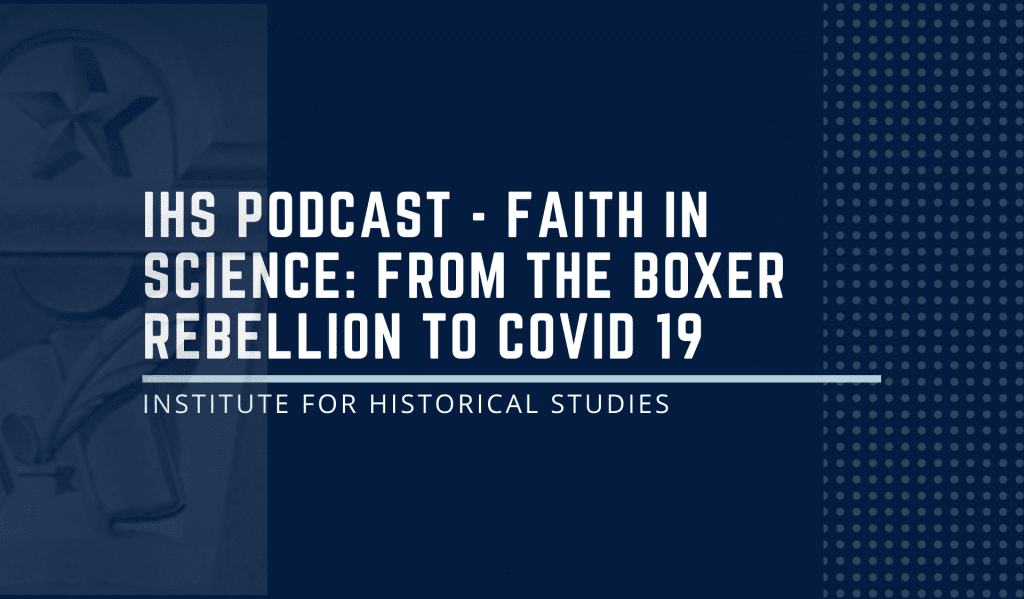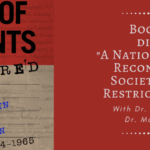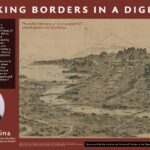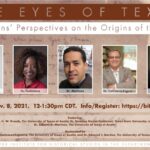
IHS podcasts are a new podcast series initiated by the Institute for Historical Studies’ Director, Dr Jorge Cañizares-Esguerra. They are paired with weekly workshops and are designed to foster discussion between graduate students and distinguished scholars in the field. Along with graduate students and guests, each episode features Dr Cañizares-Esguerra and Ashley Garcia, a PhD Candidate in History at UT Austin.
This podcast previews a roundtable discussion that will be held on Monday, August 30 at 12 pm. It features Jorge Cañizares-Esguerra, Sean F. McEnroe (Southern Oregon University), Stephan Palmie (University of Chicago), and J. Brent Crosson (UT Austin). More information on the roundtable can be found here.
This podcast reflects on the current politicization of COVID (masks and vaccination). The conversation avoids the patronizing dualism pitting a liberal party of science against a “superstitious” reactionary right wing libertarian movement. Our guests take on this duality by exploring the contributions of Anthropology of Belief and the Sociology of Knowledge. These literatures have shown that there is really not such a thing as a conflict between “science and ignorance” or “belief and doubt”. There is a struggle over whose rationality matters. The conversation explores the centrality of “propaganda” and institutional authority in the transformation of knowledge into science. Anti-vaxxers and anti-maskers have also mobilized science to make their case. Moreover, conspiracy theories are often more than creatures of feverish imaginations. Sometimes they do point to the abuses of pharmaceuticals and scientific institutions (the Tuskegee experiment). How to end the current politicization of the science of COVID? Our guests offer ethical and political guidelines for both the agnostics and the believers.
~ Jorge Cañizares-Esguerra
Guests
Sean F. McEnroe is a professor of history at Southern Oregon University, specializing in comparative colonial studies, religion, and state formation. He received his Ph.D. from UC Berkeley and is the author of From Colony to Nationhood in Mexico (Cambridge, 2012) and A Troubled Marriage: Indigenous Elites of the Colonial Americas (University of New Mexico, 2020). A contributor to Borderlands of the Iberian World (Oxford, 2019) and Imagining Histories of Colonial Latin America (University of New Mexico, 2017), and a past contributing editor to the Handbook of Latin American Studies and Oxford Bibliographies Online, his articles appear in Ethnohistory, The Americas, The Journal of Colonialism and Colonial Studies, and Oregon Historical Quarterly. His current book project explores the circulation of ideas about empiricism and spiritual forces among English and Spanish-speaking intellectual communities in the nineteenth and twentieth centuries.
Stephan Palmie is the Norman & Edna Freehling Professor of Anthropology and of Social Sciences in the College at the University of Chicago. He conducts ethnographic and historical research on Afro-Caribbean cultures, with an emphasis on Afro-Cuban religious formations and their relations to the history and cultures of a wider Atlantic world. His other interests include practices of historical representation and knowledge production, systems of slavery and unfree labor, constructions of race and ethnicity, conceptions of embodiment and moral personhood, and the anthropology of food and cuisine. He is the author of Das Exil der Götter: Geschichte und Vorstellungswelt einer afrokubanischen Religion (1991), Wizards and Scientists: Explorations in Afro-Cuban Modernity and Tradition (2002), and The Cooking of History: How Not to Study Afro-Cuban Religion (2013), as well as the editor of several volumes on Caribbean and Afro-Atlantic anthropology and history. He is currently completing a book entitled “Thinking with Ngangas: What Afro-Cuban Ritual Can Tell Us About Western Scientific Practice – And Vice Versa”.
J. Brent Crosson is an anthropologist of religion and secularism who works in the Caribbean and Latin America. His research has focused on contestations over the limits of legal power, science, and religion in the Americas. His first book is Experiments with Power: Obeah and the Remaking of Religion (University of Chicago Press 2020, winner of the 2021 Clifford Geertz Prize). His research on Caribbean practices of healing and legal intervention–known as obeah, spiritual work, or science–has been published in a number of journals, including Method and Theory in the Study of Religion, Ethnos, The Journal of Africana Religions, and Cosmologics. His special issue in the journal Ethnos–“What Possessed You?”–explores the relationship between spirit possession, material possessions, and conceptions of self. His work on race relations and solidarity has appeared in Anthropological Quarterly and the Duke University Press journal Small Axe. His current research focuses on climate change, religion, and conceptions of energy, with chapters on these issues forthcoming in the edited volumes Mediality on Trial (De Gruyter Press), Climate Politics and the Power of Religion (Indiana Univ. Press), and Critical Approaches to Science and Religion (Columbia Univ. Press).
Hosts
Jorge Cañizares-Esguerra is Alice Drysdale Sheffield Professor of History at the University of Texas at Austin and the Director of the Institute for Historical Studies.
Ashley Garcia is a PhD candidate at the University of Texas at Austin. Her research includes 19th century political history, American communitarianism, and American political thought. Her dissertation, “An American Socialism: The Associationist Movement and Nineteenth Century Political Culture,” explores America’s most popular utopian socialist program: the Associationist movement of the 19th-century. Ashley has also completed a Portfolio in Museum Studies as her secondary PhD field.
The views and opinions expressed in this article or video are those of the individual author(s) or presenter(s) and do not necessarily reflect the policy or views of the editors at Not Even Past, the UT Department of History, the University of Texas at Austin, or the UT System Board of Regents. Not Even Past is an online public history magazine rather than a peer-reviewed academic journal. While we make efforts to ensure that factual information in articles was obtained from reliable sources, Not Even Past is not responsible for any errors or omissions.



